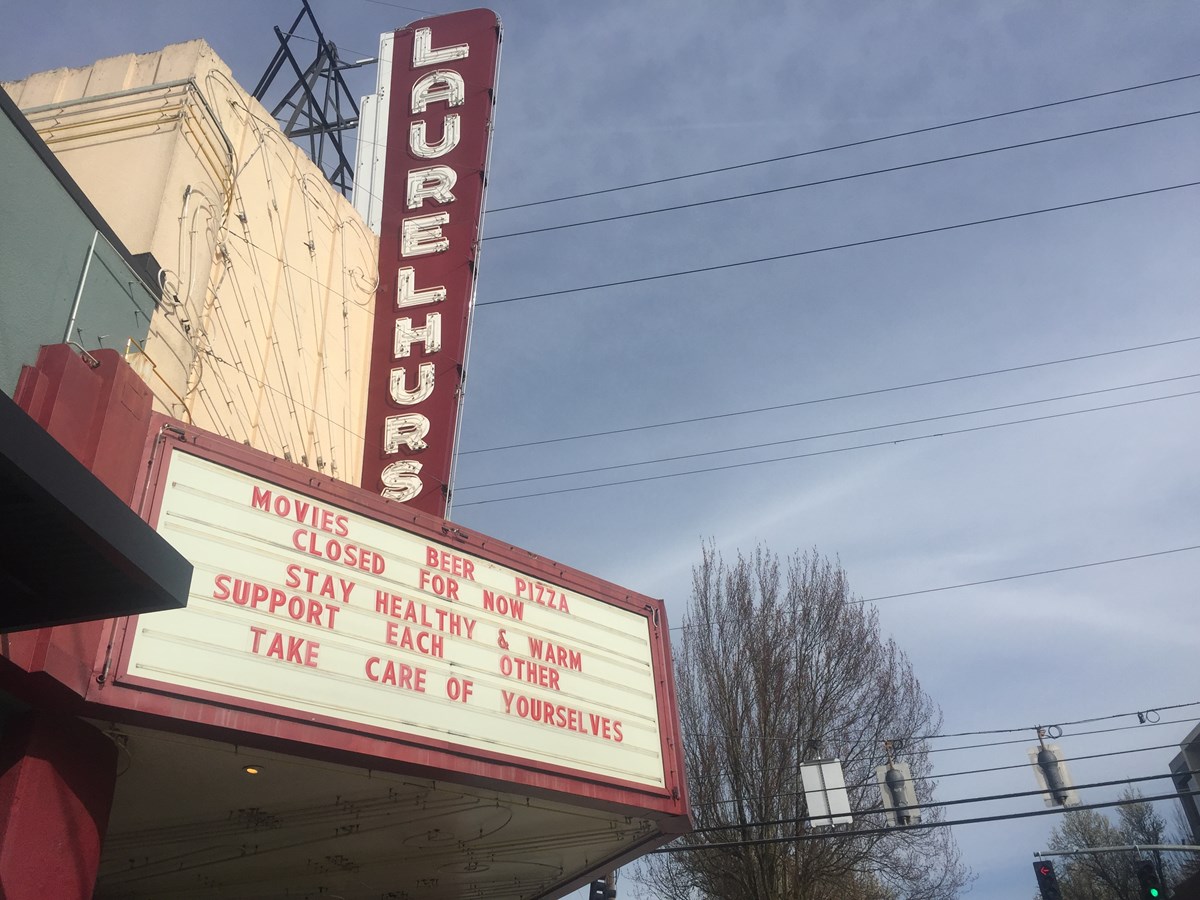Why Everyone Is Vulnerable When the Government Determines Whose Work Is ‘Essential’
By Sam
Did you ever think that there would come a time when going to work or meeting with consenting individuals would be acts punishable under the law? Or if going to a grocery store or something as basic as getting a haircut would be forbidden by the authorities?
To say that the coronavirus has changed the world as we knew it is an understatement. It has made practicing your free will a crime to a considerable extent.
The COVID-19 pandemic hit the economy hard, both nationally and internationally. But things took a surprising turn when cities and states across the country ordered the closure of what they deemed to be “non-essential businesses.”
This one move had everybody asking several legitimate questions: which businesses are considered essential? Is the practice of a few government officials determining the “essentialness“ of anybody’s livelihood right? Isn’t the whole point of a truly free society for businesses to stay open and allow people to take the risk to go out in public if they so desire?
In this article, we'll try to dissect the thought process related to this distinction, along with the negative implications lockdowns have had for business owners and employees alike.
Essential Business vs. Non-Essential Business
Essential businesses are those that have been granted the legal benefit of continuing operations despite the pandemic, although the specific definition varies from one state to another. Medical professionals, emergency services, grocery stores, post offices, shipping businesses, banks, and gas stations are a few businesses that are generally deemed as “essential.“
On the other hand, theatres, restaurants and bars, museums, gyms, recreation centers, shopping malls, and salons have been demoted to “non-essential“ status. What makes it worse is that owners have been forced to close their doors indefinitely.
Los Angeles Mayor Eric Garcetti promised that he would shut down the businesses of “selfish“ business owners. He further threatened citizens who don't abide by the authorities to criminally charge them and even shut off their basic amenities, such as power and water.
It’s clear that many government officials and bureaucrats simply fail to understand that using a means of threat and coercion directly goes against the constitutional and natural rights of human beings. While it’s true that the coronavirus pandemic has created unique circumstances, our elected officials really need to think before closing down businesses, even if only temporarily.
The Crippling Effect on the Economy
We can’t help but ask: what are everyday people and business owners supposed to do? Every aspect of the economy has been affected. Since the virus hit, credit card spending from American consumers on everyday purchases has plummeted by more than 40 percent, the number of unemployed Americans soared by over 14 million, and hundreds of thousands of businesses have been forced to shut their doors permanently.
As just discussed, the forceful shutdown of livelihoods and strict impositions of rules goes against the true essence of freedom: most notably, freedom of assembly, freedom of association, and freedom of choice. But the heavy impact of the shutdowns on the economy brings up another moral issue: people being free to continue their livelihoods through doing business and exchanging value with one another.
Should we really be leaving economies to the whims of politicians, and allowing them to blatantly experiment with the livelihoods of millions of people? What many of these politicians don’t understand is that the economy isn’t a light switch that can be turned off and then quickly turned back on with zero or even minor consequences.
How is this “Essentialness” Determined?
It's a fact that government officials are determining how essential someone’s livelihood is, and it’s these same officials who have a questionable understanding of economics and the potential consequences of their decisions. This immediately makes everyone involved vulnerable.
The whole idea behind the concept of free enterprise is allowing consumers to decide whether or not a product or service is worth their money, or if they want to support a company by buying their products.
It was simple before: an (at least in theory) self-regulating market was the primary reason for the shutting down of businesses. Many politicians lauded China’s response, despite their appalling censorship practices, giving in to the belief that sacrificing freedoms would be a viable means of protecting the economy. But now, things have changed. Government officials shutting down economies not only doesn’t reflect fair competition, but it’s also an arbitrary act of deciding the importance of specific businesses or industries over others.
In addition to this, some of these “essential“ businesses aren’t any less risky. Multiple news outlets have reported how grocery stores have become hotbeds of the virus, putting both the employees as well as the customers at risk.
Think about it from this perspective: Why is visiting (and sometimes even cramming inside) acceptable inside a grocery store and not a salon? Why should workers in “essential” industries who don't want to continue working amidst the pandemic be asked to continue? Why should students and teachers be forced to take online classes, which has directly resulted in numerous new privacy concerns? Why should companies lay off the majority of their workforce without enough notice or even severance packages?
Now, most people think it’s reasonable for governments to consider a food store as essential and not a haircut place. But, this isn’t right if you keep human rights in mind – the state doesn’t have the right to deem what is essential or not and make the choice for others.
Otherwise, it’s just the blatant classification of certain businesses being more valuable than others, which again goes against the true meaning of democracy.
Ignorance is a Vice
Applying shutdowns can definitely be unconstitutional, especially when a mayor treats a gun shop less favorably just because somebody can’t accept one's Second Amendment rights, or when civil groups are allowed to convene in numbers, but churches aren’t.
All of this is ultimately what happens when the right to make decisions affecting the lives of individual people is no longer entrusted to said individual.
Let's suppose that someone does get sick with something contagious. Shouldn't the state have a role in preventing that person from being out in public in order to prevent other people from getting sick? Plus, there's herd immunity and the fact that being forced to stay at home and not getting exposed to the virus might end up making our immune systems weaker, guaranteeing we become more susceptible to the virus.
But what if a different approach was adopted instead: one where government officials allowed businesses to adapt to the circumstances created by the coronavirus pandemic rather than issuing orders to have them shut down entirely? Such an approach is certainly not unprecedented or out of the question, as we have seen with Sweden.
Sweden did not shut down its economy and managed to have very low cases of the coronavirus as opposed to many countries that are in a lockdown (though not all).
Officials are turning their face from the reality that millions live paycheck to paycheck, and don’t have a financial safety net to look back on. These officials also fail to realize that every industry is interrelated. Annihilating supply chains will eventually cause “essential” businesses to suffer as well.
The Importance of Decentralization of Power
The Tenth Amendment states, "The powers not delegated to the United States by the Constitution, nor prohibited by it to the States, are reserved to the States respectively, or to the people."
In other words, powers not specifically given to the federal government by the Constitution fall on the individual states. The debate here is whether the central government or the states have authority on certain issues. For example, President Donald Trump argues that the USgovernment has the authority to order the states to reopen, but the responsibility of coronavirus testing falls to the states.
Keeping this in mind, an effective solution here would be to decentralize power from the federal government to the states and then from the states to the local governments.
Localism can be very helpful when it comes to addressing pandemic or economic recession-related issues since it gives more control to citizens. A person's individual vote matters more in a local election than on the state or federal level because fewer people are voting in a local area, so everyone's vote carries more weight. This also translates to people having more control over their lives and greater control over the government.
There is Nothing “Essential” or “Non-Essential” About Livelihood
In a genuine free market, it's the consumer who should remain sovereign. All activities related to economics are, in essence, human activity. This means that everyone’s livelihood is important to them. Making misinformed decisions and disregarding the contribution of a specific section as non-essential is a colossal mistake that will have dire consequences for the years to come.

